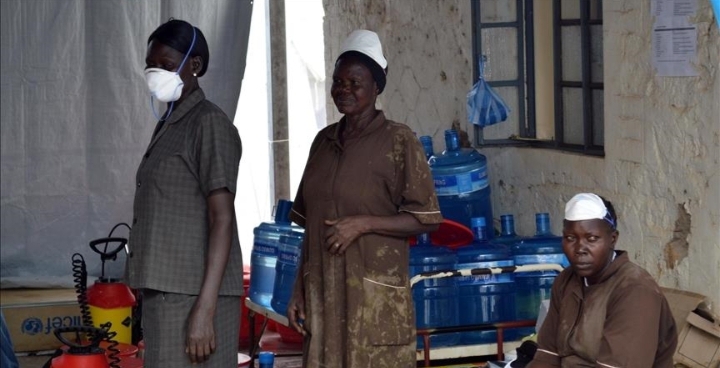The WHO is establishing stabilization centers and oral rehydration points to enhance case management and ensure access to lifesaving Oral Rehydration Salts.
Cholera Spreads Rapidly in Sudan, WHO Warns


Sudan reported a total of 28 deaths from cholera within a single month, according to a World Health Organization (WHO) official who spoke on Friday.
During a weekly press conference in Geneva, representatives from the WHO and the United Nations discussed how the recent cholera outbreaks in Sudan have been driven by flooding, inadequate water, hygiene, and sanitation conditions in camps for displaced individuals.
Shible Sahbani, the WHO representative in Sudan, stated that in the month following the initial reports of suspected cases, there have been 658 confirmed cases and 28 deaths across five states, reflecting a high case-fatality ratio of 4.3%. Among these states, Kassala has reported the highest number of cases with 473, followed by Gedaref with 110 and Al Jazirah with 51. Khartoum and River Nile states have reported fewer cases.
The current cholera cases are distinct from the previous outbreak declared in September 2023, which concluded in May 2024 after two incubation periods without new cases.
The WHO is working with health ministries and has prepositioned cholera kits and medical supplies in high-risk areas to support the response, even in locations like Khartoum and Al Jazirah where access is complicated by security issues.
Sahbani noted that a three-day oral cholera vaccination campaign was conducted in Kassala State, administering 51,000 doses to cover 97% of the eligible population in areas with high caseloads. The WHO is also preparing to request additional doses from the International Coordinating Group (ICG) for a second campaign, with 455,081 doses allocated for high-risk areas in Kassala State.
To improve case management and access to lifesaving Oral Rehydration Salts (ORS), the organization is establishing 10 stabilization centers and 48 oral rehydration points. There is also a pressing need for financial support to address health needs compounded by diseases, malnutrition, natural hazards, and conflict. The humanitarian response plan is currently only 37.4% funded, with the health response at 42.7%. The WHO is urging donors to continue their support for Sudan.
UN High Commissioner for Refugees Kristine Hambrouck highlighted that the new cholera wave poses a significant threat to displaced communities across the country. The disease is spreading rapidly in refugee-hosting regions, particularly in Kassala, Gedaref, and Jazirah states, which are hosting both foreign refugees and Sudanese displaced by conflict. To date, 119 cholera cases have been confirmed in three refugee sites in Kassala State, as reported by Sudan’s Ministry of Health.
Although Gedaref has also experienced cholera cases, no refugees there have been affected so far. The outbreak has been exacerbated by recent heavy rains and flooding, ongoing conflict, overcrowded camps, and strained health and sanitation infrastructure.

 বাংলা
বাংলা  Spanish
Spanish  Arabic
Arabic  French
French  Chinese
Chinese 
